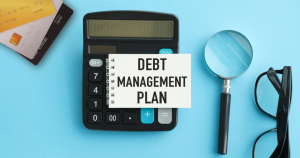Key takeaways
- A mortgage escrow account bundles your property taxes and insurance into your monthly mortgage payment.
- Escrow offers convenience and predictability but reduces flexibility and may require a large upfront deposit.
- While escrow simplifies payments, managing them yourself may offer more control if the option is available.
A mortgage escrow account is an integral part of the financial picture for many homeowners. These accounts are typically used in two ways: to hold an earnest money deposit a buyer puts on a home after signing a contract with the seller (it’s released at the closing), and to pay a homeowner’s property taxes, mortgage insurance and homeowners insurance premiums.
When it comes to the latter, some homebuyers are required by their mortgage lender to have an escrow account; others may opt into one through their mortgage servicer. Here’s how mortgage escrow accounts work, and if you do have a choice, the pros and cons to consider.
How do mortgage escrow accounts work?
Once you become a homeowner, a mortgage escrow account is an account used to hold and ensure that some of the major, ongoing expenses associated with your home are paid on time.
Typically, these expenses include:
- Mortgage insurance payments
- Homeowners insurance premiums
- Property taxes
Instead of paying insurance and taxes separately, from a personal account, the money to cover these bills — plus a little extra, known as a “cushion” — is included in your total monthly mortgage payment. The mortgage lender or servicer holds these funds in an escrow account and makes the payments on the homeowner’s behalf as they are due. Payments might be made monthly, quarterly or biannually.
The key difference between an escrow account and any other financial account you might have: You don’t manage an escrow account yourself. Escrow is facilitated by a third party — in this case, your lender or servicer.
Escrow accounts also serve a purpose during the homebuying process. They’re used to temporarily hold your earnest money, a deposit you provide to demonstrate to the seller that you’re serious. That money is usually applied to your closing costs or down payment.
Should you use an escrow account?
Depending on the loan type, an escrow account may not be optional. For example, conventional mortgages often require escrow if your down payment is less than 20 percent. FHA and USDA loans also mandate escrow accounts, while VA loans do not.
Even if you’re not required to have one, a mortgage servicer may still offer the option. It’s a way to simplify payments for ongoing expenses like property taxes, mortgage insurance and homeowners insurance.
Some homeowners prefer this convenience. Others might opt out, if allowed, in favor of handling these bills themselves.
Pros of a mortgage escrow account
It’s automatic
Having your mortgage lender or servicer hold your property tax and homeowners insurance payments in escrow ensures that those bills are paid on time, automatically. You don’t have to keep track of it, or even think about it, and you avoid penalties such as late fees or potential liens against your home.
You’re covered when there are shortfalls
Homeowners insurance premiums and property tax assessments can fluctuate over time. For example, if your escrow account is short due to an increase in property taxes, your servicer will typically cover the difference temporarily. To make up for it, they’ll eventually increase your monthly mortgage payment.
No surprises
The exact amount needed for escrow is added to your monthly mortgage payment for you, so you’ll know what to expect the majority of the time. If the escrow component of your monthly mortgage payment needs to increase, you’ll get a notice from your lender or servicer in writing. Plus, your lender or servicer is required to send you an annual escrow statement that shows the amounts you’ve paid (and the drawdowns) along with any overages or shortages.
“Escrow accounts make life a lot easier for the majority of homeowners that want to add predictability to their monthly expenses, rather than getting whacked twice a year with big insurance and property tax bills,” says Greg McBride, CFA, Bankrate’s chief financial analyst.
Learn more: 10 key questions to ask when buying a house
Potentially lower mortgage costs
Depending on your mortgage lender, you may be able to get a discount on your interest rate or closing costs just by having an escrow account. Some lenders offer these incentives because escrow accounts ensure the key bills are paid on time, which lowers their risk. Even a small interest rate reduction can lead to meaningful long-term savings, so it’s worth asking about any available benefits when you’re comparing loan options.
Cons of a mortgage escrow account
It’s automatic
While it’s convenient not to have to think about making various payments on time, this pro can actually be a con for organized homeowners who prefer to have full control over their payments. Many mortgage lenders allow homeowners to make property tax payments directly to the county assessor and homeowners insurance payments to their insurer.
You might miss out on investment opportunities
In particular, the money that might end up as an overage in an escrow account could be used for short-term investments. Earning interest on such investments may make more financial sense for you, instead of allowing a bank or lender to reap the gains.
Digital tools and attractive CD rates can help you invest your money outside of escrow and earn a better return for the long term, notes Henry Yoshida, founder and CEO of Rocket Dollar, a platform based in Austin, Texas, that enables users to invest funds from tax-advantaged retirement accounts.
A large upfront deposit
Often, setting up an escrow account requires a homebuyer to deposit an amount equal to two to three months’ worth of property taxes and insurance premiums. These are sometimes called “prepaids,” and they can significantly add to your mortgage closing costs.
Because you’ll be paying for insurance and taxes with your regular mortgage payment, you’ll have a higher payment each month. Of course, you have to pay for insurance and taxes anyway, so they aren’t an additional cost. But having them in your monthly payment could leave less room in your budget month-to-month, and prepaids can exacerbate that.
Can be a target for scammers
Large sums parked in an escrow account make it an attractive target for fraudsters. Common mortgage escrow fraud schemes include cyber-thieves setting up fake websites that look similar to the servicer you’re working with, or spoof email addresses to try to get your personal information. Some sophisticated scammers even set up fake phone lines in an attempt to build trust. Under these false pretenses, fraudsters might try to persuade you to wire them money.
If you suspect escrow fraud, report it to the Federal Trade Commission (FTC) or your state’s consumer protection agency, or contact your mortgage servicer directly using verified contact information. Avoid clicking on suspicious emails, texts or messages. Always double-check that you’re using the correct payment portal.
Possibility of incorrect estimates
The amount that needs to be tucked away in your escrow account hinges on your insurance premiums and property taxes, which can vary year-to-year. Generally, the previous year’s bills are used to figure out how much you’ll need, but incorrect estimates can happen if, for example, the assessed value of your home has increased — or you appeal and get a reduction in your property taxes.
Learn more: Should I buy a house now, or wait?
FAQs
Why we ask for feedback
Your feedback helps us improve our content and services. It takes less than a minute to
complete.
Your responses are anonymous and will only be used for improving our website.
Help us improve our content
Read the full article here









